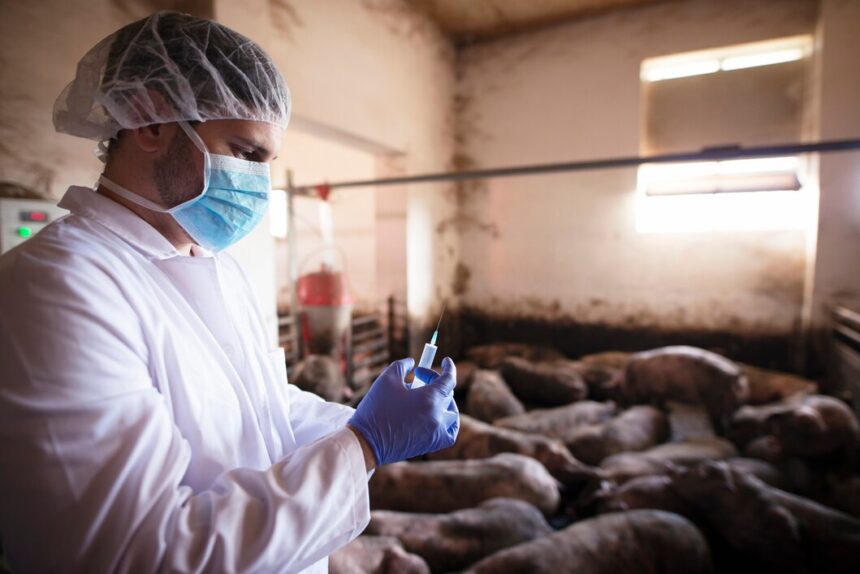Artificial insemination (AI) is a revolutionary reproductive technology that offers significant advantages for livestock farmers in South Africa. By allowing for controlled breeding, AI can enhance herd genetics, improve productivity, and contribute to better disease management. This article provides essential insights for South African farmers considering the implementation of artificial insemination in their livestock operations.
1. Understanding the Basics of AI
Artificial insemination involves the collection of semen from a male animal and its subsequent introduction into the reproductive tract of a female. This technique allows farmers to use superior genetics without the need for physical access to the male animal, broadening breeding options and improving herd quality.
2. Benefits of AI
- Genetic Improvement: AI allows farmers to select from a wider range of genetically superior sires, enabling improved growth rates, milk production, and disease resistance in offspring.
- Disease Control: By reducing the need for physical mating, AI minimizes the risk of transmitting sexually transmitted diseases among livestock.
- Cost-Effectiveness: Farmers can save on costs associated with maintaining a bull, including feed, housing, and veterinary care.
- Better Herd Management: AI facilitates better planning and control over breeding schedules, leading to more uniform and manageable calving or kidding seasons.
3. Choosing the Right Semen
Selecting high-quality semen from reputable breeding programs is critical. Farmers should consider factors such as the genetic background of the sire, its performance records, and compatibility with the existing herd. It’s also advisable to consult with a livestock geneticist or veterinarian to make informed decisions.
4. Timing of Insemination
The timing of AI is crucial for successful conception. Farmers should monitor the female’s estrous cycle closely. The ideal time for insemination is usually within 12 hours of detecting estrus (heat). Utilizing heat detection aids, such as patches or electronic monitoring systems, can enhance accuracy in timing.
5. Proper Handling of Semen
Semen is a valuable resource that requires careful handling to maintain viability. Here are some key practices:
- Storage: Use liquid nitrogen tanks to store semen and ensure temperatures are maintained consistently below -196°C.
- Thawing: Follow recommended thawing protocols (usually around 30-40 seconds in warm water) before use to maximize the chances of successful fertilization.
- Hygiene: Ensure that all equipment used for AI is sterile to prevent contamination and infection.
6. Insemination Technique
The AI process requires skill and training. Farmers can consider the following options:
- Training Programs: Attend workshops or training sessions conducted by local agricultural colleges or veterinary clinics to learn proper insemination techniques.
- Hiring Professionals: For those who are inexperienced or want to ensure high success rates, hiring a trained AI technician may be the best approach.
7. Post-Insemination Management
After insemination, proper care and management of the female animal are essential. Ensure that the animal has access to clean water, quality feed, and a stress-free environment to promote successful conception and pregnancy.
8. Monitoring and Record-Keeping
Maintain detailed records of AI procedures, including the dates of insemination, the semen used, and the outcomes. Monitoring pregnancy rates and performance of offspring will help assess the effectiveness of the AI program and guide future breeding decisions.
9. Dealing with Challenges
Be prepared for potential challenges associated with AI, including low conception rates or health issues in the female livestock. Regular veterinary checks and consultations can help mitigate these risks and enhance overall herd health.
10. Staying Informed and Connected
Engage with local agricultural organizations, forums, and extension services to stay informed about the latest advancements in AI technology and best practices. Networking with other farmers can also provide valuable insights and support.
Artificial insemination presents a powerful tool for South African livestock farmers looking to improve herd quality and productivity. By understanding the principles, techniques, and management practices associated with AI, farmers can leverage this technology to enhance their operations, ultimately contributing to a more sustainable and profitable agricultural sector. With careful planning and commitment, AI can lead to significant advancements in livestock breeding and production in South Africa.








